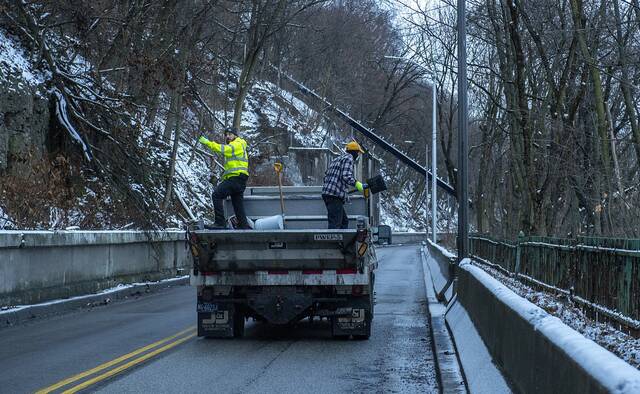Vaccine hesitancy among working-age adults varies by occupation — and so does their reasoning for being hesitant, a study from University of Pittsburgh and Carnegie Mellon University scientists found.
Scientists from the institutions analyzed results from an ongoing national covid-19 survey by CMU’s Delphi Research Group. Since March 2020, the Delphi Group has surveyed Facebook users on covid topics, including symptoms, testing and behaviors such as masking and social distancing.
Starting Jan. 6, another question was added to the survey: “If you were offered a vaccine today, would you take it?”
“We had seen research in hesitancy but hadn’t seen it broken out by (profession),” said Robin Mejia, special faculty at the CMU Dietrich College of Humanities and Social Sciences and a senior author of the paper. “It was striking to see the variation by job category.”
The scientists classified people who said they “probably” or “definitely” would not receive a vaccine if offered as “vaccine hesitant.” They studied people between the ages of 18 and 64.
Among the younger population, the researchers found, there was vast variation in the levels of vaccine hesitancy within different job fields.
Hesitancy was less than 10% among educators, for example, while it was more than 46% among people working in construction, oil and gas production. The researchers studied dozens of occupations and identified high vaccine hesitancy in fields such as maintenance and installation jobs (42%) and farming, fishing and forestry (41%).
“The extent of it was surprising,” said Wendy C. King, the paper’s lead author and associate professor of epidemiology in Pitt’s Graduate School of Public Health.
The researchers noted that previous studies have shown vaccine hesitation decreases with increased education. Their findings fell along with that research, with higher levels of vaccine hesitancy in fields that don’t typically require advanced degrees.
Among health care workers, pharmacists had the lowest hesitancy at 8.5%, while medical assistants, emergency medical technicians and home health, nursing, psychiatric or personal-care aids had the highest hesitancy at 20.5%, they noted.
About half of the people who expressed hesitancy gave reasons including fear of side effects.One-third said they didn’t believe they needed the vaccine, were waiting to see if it was safe or generally distrusted the government or vaccines.
But the groups with the highest rates of hesitancy, the researchers said, were more likely to report lack of trust in the vaccine or in the government.
“Those are both really issues that public health professionals need to address,” Mejia said.
Fear of side effects or worries about the speed in which the vaccines were developed often can be remedied with further education and information, she said.
But full-on distrust is harder to combat.
The paper’s authors hope the information can be used to encourage employers and public health officials to embark on more targeted messaging:
• offering workplace vaccine clinics;
• launching targeted information campaigns to promote the vaccine’s safety and efficacy;
• encouraging “champions” to get inoculated and encourage their colleagues to do the same.
“This presents an opportunity to think about: How can we take this seriously? How can we promote vaccination in different workplace contexts?” Mejia said.
Action on this data is important, King said, especially as the analysis showed high hesitancy rates in several occupations that have been known to experience severe covid outbreaks among workers, including those working in food packaging and agriculture. She noted that the Centers for Disease Control and Prevention already provides detailed materials and guidelines for companies and employers for encouraging vaccine administration and hosting successful workplace clinics.
There were some optimistic findings, Mejia said. Of the more than 700,000 Facebook users surveyed each month since January, the researchers found vaccine hesitancy decreased from January to March, from 27.5% of respondents to 22.1%.
“Broadly, the population trend is going in the right direction,” she said, “and we think this paper does provide data we hope can inform effective targeting.”








